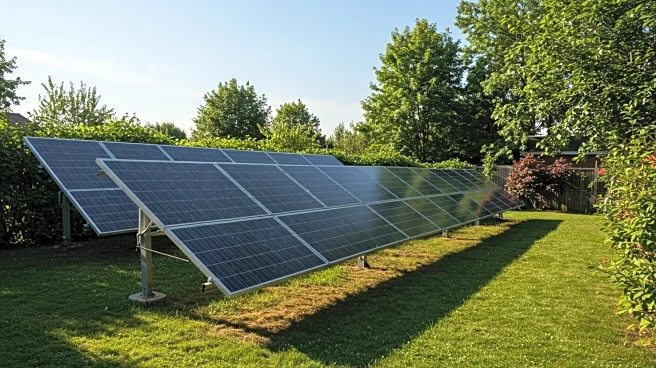What's Happening?
Homeowners across the U.S. are rapidly installing solar panels to take advantage of expiring tax credits. The residential tax credit, which provided a 30% incentive for solar installations, is ending nearly 10 years early under President Trump's tax and spending law. This has led to a surge in demand, with companies like Alternative Energy Southeast experiencing a significant increase in requests for solar installations. The expiration of these credits is causing concern among solar industry professionals, who fear a decline in residential solar projects and potential business challenges.
Why It's Important?
The rush to install solar panels before the tax credit expiration underscores the importance of government incentives in promoting renewable energy adoption. The potential decline in residential solar installations could impact the solar industry, which employs thousands of workers nationwide. The loss of tax credits may hinder the growth of solar energy, affecting efforts to transition to cleaner energy sources. This situation highlights the need for stable, long-term policies to support renewable energy and ensure continued investment in the sector.
What's Next?
As the tax credits expire, solar companies may shift focus to commercial clients to offset potential losses in residential projects. The industry faces challenges from changing tariffs and the uncertain future of federal programs like Solar For All. Stakeholders may advocate for new policies to support solar energy and address the impacts of the credit expiration. The situation calls for strategic planning to maintain industry growth and support the transition to renewable energy.









